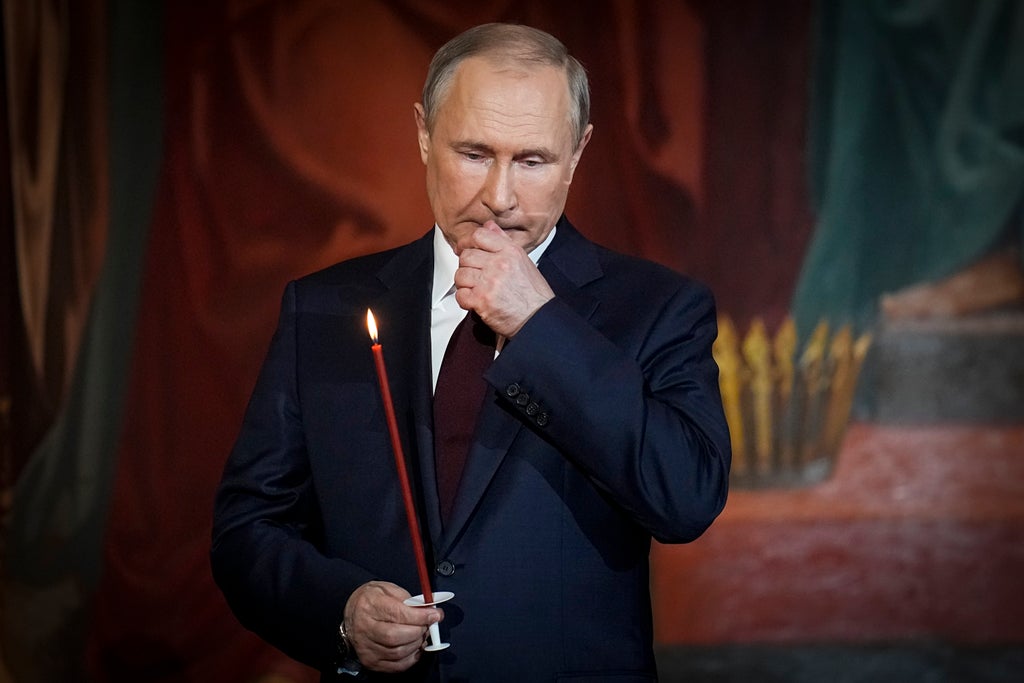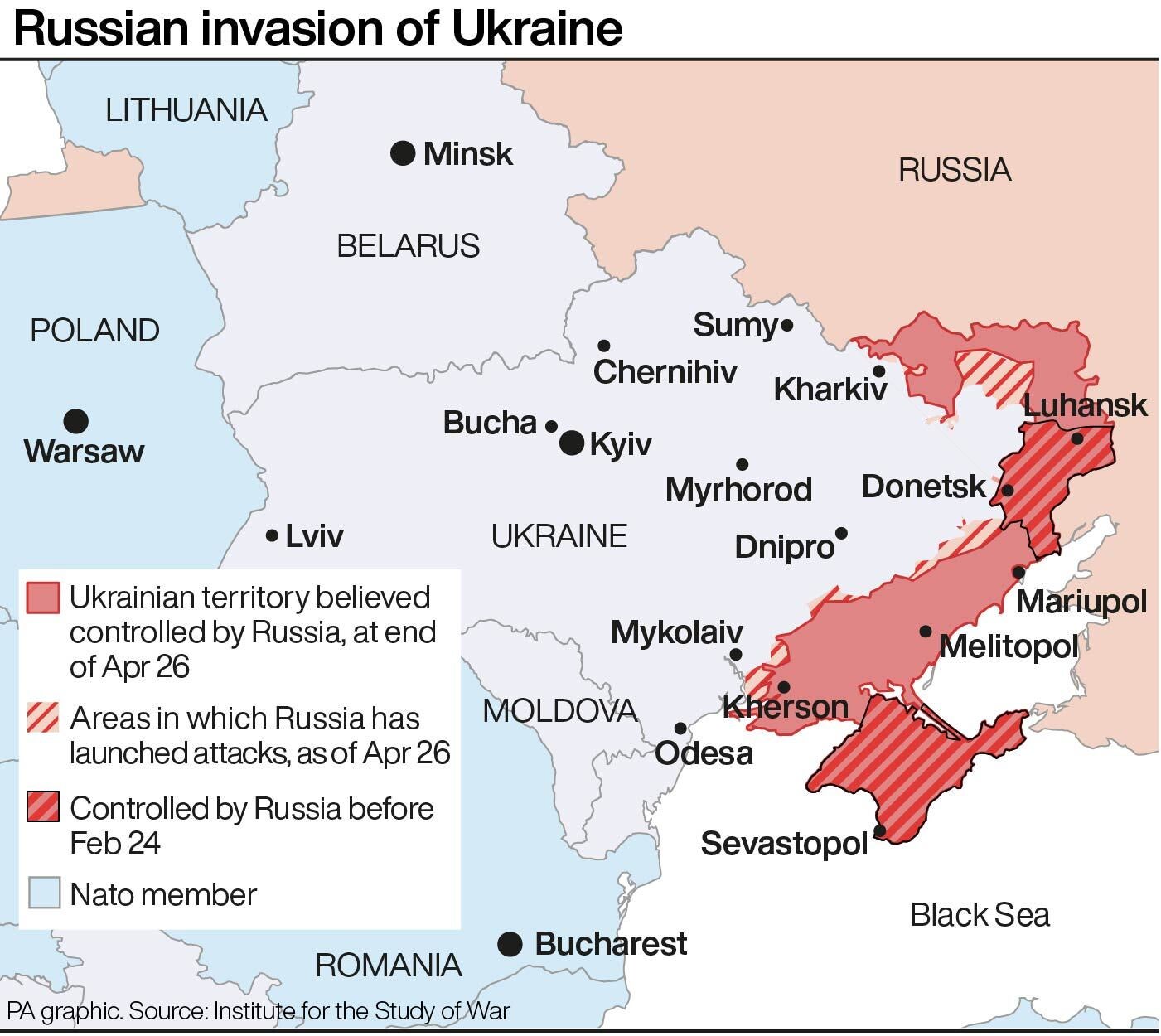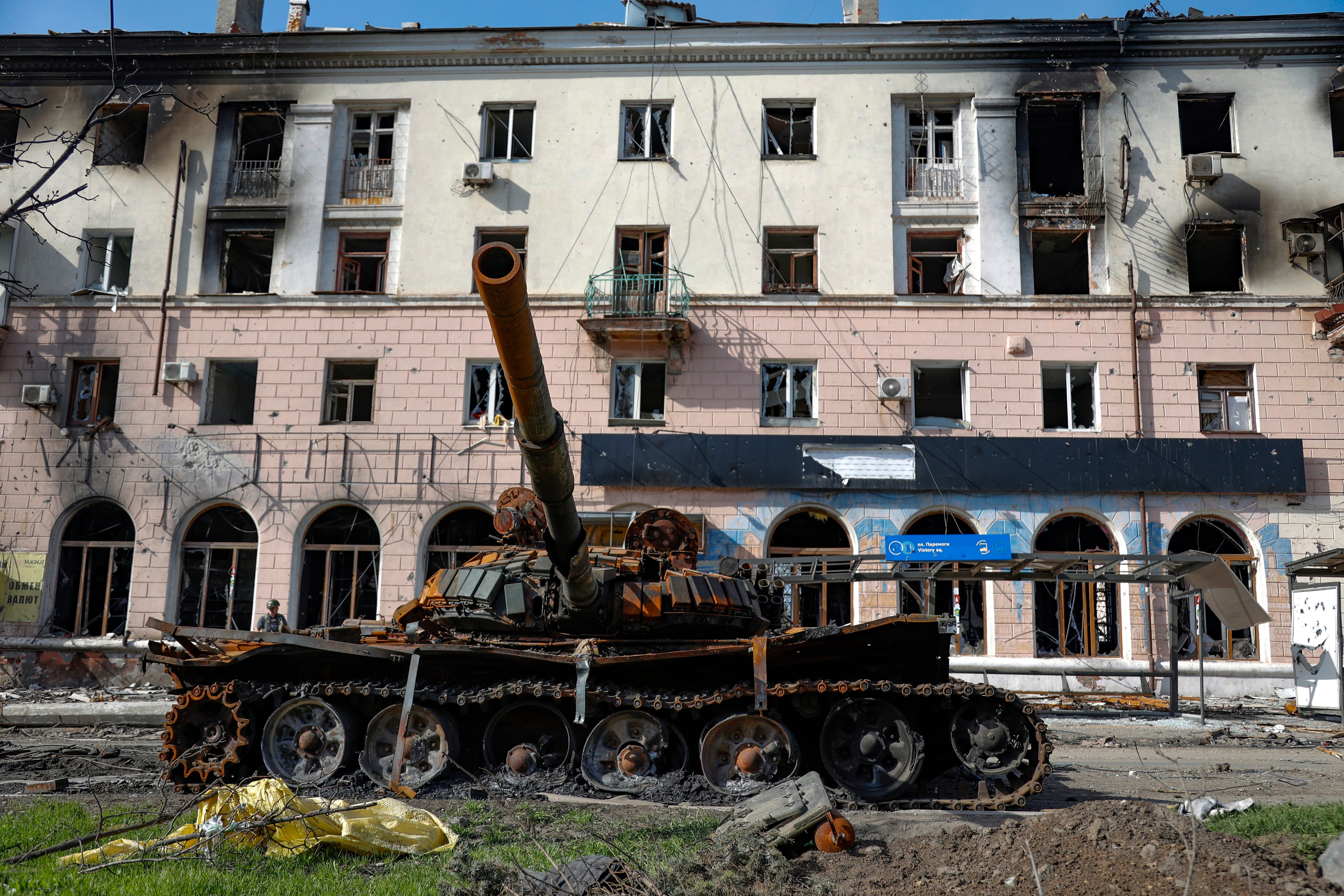
Moscow’s threat of a “proportional response” against Britain for backing Ukrainian strikes behind Russian lines is “unlawful”, Deputy Prime Minister Dominic Raab has warned.
He said Vladimir Putin’s regime is only adding to its “pariah status” by threatening other countries, including by shutting off gas supplies to Poland and Bulgaria.
The Kremlin was angered by armed forces minister James Heappey saying it was “completely legitimate” for Ukraine to strike strategic targets on Russian soil.
Russia’s defence ministry accused the UK of “direct provoking” of Ukraine into attacks, warning of a “proportional response” if the country succeeds in landing them, hinting at possible strikes at British sites in Kyiv.
Mr Raab, who is also Justice Secretary, told Sky News: “The Russian statement is unlawful and what we’re doing is lawful, we’re entitled, all states are entitled to provide military support to any state exercising the right of lawful defence against an aggressive invasion.
“Frankly if Russia starts threatening other countries it only adds further to their pariah status and will only further the solidarity and consensus in the international community that they must be stopped.”
His comments were later reinforced by western officials, who agreed that Russia’s threats were “unlawful”.
In a briefing, they said: “There is a Russian narrative that this is a proxy war between Russia and Nato. It isn’t. We are supporting Ukraine in their self-defence.
“It is a conflict between Russia and Ukraine provoked by Russia’s illegal aggression. We are entitled to provide military support to any state exercising its right to self-defence and that is lawful. The Russian statement threatening retaliatory strikes is unlawful.”
Mr Heappey had argued it was “not necessarily a problem” even if Ukrainians used British-donated weapons to strike Russia in its own territory “to disrupt the logistics that if they weren’t disrupted would directly contribute to death and carnage on Ukrainian soil”.
According to the Interfax news agency, the Russian defence ministry said: “We would like to stress that the direct provoking by London of the Kyiv regime into such activities, should there be an attempt to realise them, will immediately lead to our proportional response.”

A statement reportedly added that Russian forces are primed to “deliver retaliatory strikes using long-range high-accuracy weaponry” against “centres taking relevant decisions” in the Ukrainian capital.
“The advisers from among the subjects of one of the Western countries that are located in Ukrainian decision-making centres in Kyiv will not necessarily be a problem when Russia decides to take retaliatory action,” the ministry said.
While the Russian statement did not make clear its possible target, Prime Minister Boris Johnson has announced that diplomats will return to the British embassy in Kyiv this week.
The return after officials were moved to the western city of Lviv just before the invasion was launched in February was understood to be still going ahead despite the Kremlin’s threats.
Meanwhile, officials in Poland and Bulgaria said Moscow is cutting off natural gas deliveries over their refusal to meet Mr Putin’s demands to pay in roubles in response to sanctions on Russia.
European Commission president Ursula von der Leyen said the move by state-owned energy giant Gazprom against the EU and Nato members is “blackmail”.
She said a “co-ordinated EU response” was being worked up in response to the “unjustified and unacceptable” move from Russia.

Mr Raab told Sky News: “We will stand shoulder to shoulder with our Polish friends and allies, they’ve said they can deal with this but of course it will have a very damaging effect on Russia as well.
“Because it is becoming further and further, more and more not just a political pariah but an economic pariah and that will put the squeeze ultimately on Vladimir Putin.
“But one thing is true and clear, we cannot allow his bullying behaviour, whether it’s economic warfare or it’s military warfare, to succeed.”
This sentiment was also echoed by western officials, who argued interrupting the supply of gas to Poland and Bulgaria was likely to be “counterproductive” for Russia.
“This really does underline the reason why it is so necessary for us to reduce our dependency on Russian hydrocarbons,” they said.
“That action is likely to be counterproductive in really demonstrating to everybody why dependence on Russia makes them vulnerable to coercion of this nature.”
Mr Raab also said the “conflict is in the balance” when asked about Ukraine’s chances of victory, and he stressed the need to supply more firepower.







